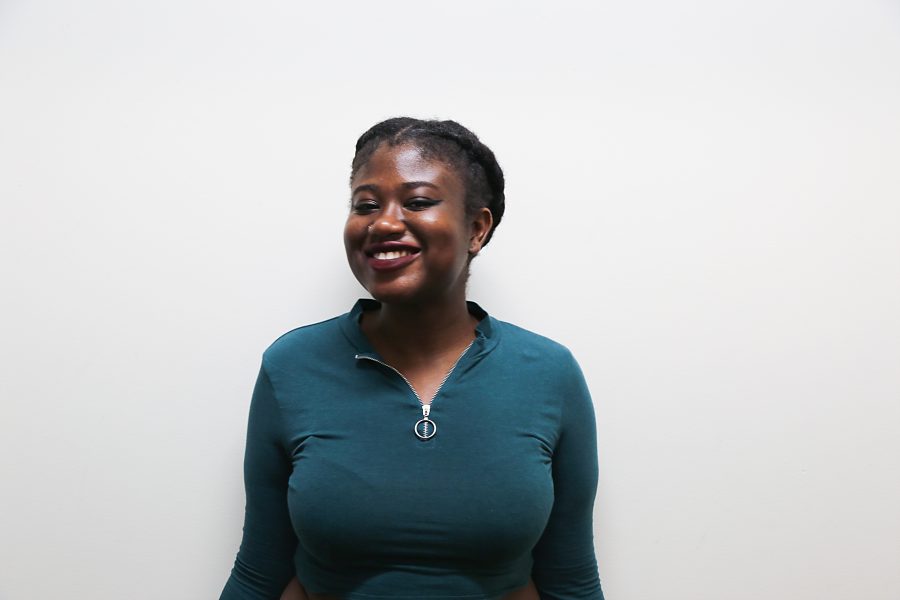New York is exhausting, college is distressing and life is heartbreaking. We all know this. Life’s highs and lows can bring you to the peak of ecstasy or drive you to the point of depression. If Johnny doesn’t get his dream job, or if his sports team loses, we allow him to be upset.
But imagine a woman that is not in the business of smiling for strangers on the street. And if the woman conserving her emotional availability is black, the image is almost unfathomable. Black women being forced to repress their emotions reinforces a negative stereotype stemming from racism and sexism, one that we need to dismantle.
Being regarded as a villain is an experience of mine as common as refilling money on a MetroCard. Whether in the gym locker room or waiting in line at Starbucks, if I am not visibly brimming with happiness, people interact with me as if I am going to attack them. White women scurry by me in fear, eyes wide and head down. If for any reason they need to speak up, maybe they need to get by, they utter “excuse me,” voices quivering. And then they speed walk away, though some spend a few moments apologizing profusely first. Finally, the six-second interaction is over and I am now a monster.
Liberal Studies first-year Elohor, who is black and asked to go by just her first name for privacy reasons, deals with similar exchanges upon returning to her dorm. “I love my roommates, but I’m a very introverted person and sometimes I don’t want to talk,” she said. Once she says that she is not in the mood to chat, her roommates express a quiet offense, faces taken aback and shoulders slumped. Of course, they try to hide this, “but I can tell,” she said.
While more than likely subconscious, this reaction is a form of internalized racism and policing of women’s emotions. Women are not allowed to be assertive and self-prioritizing, lest we disrupt any notions of docility and limitless availability. If we do not fulfill the role of the nurturing matriarch, we receive backlash.
These sentiments of anti-black racism and its results are a sort of emotional confinement placed particularly hard on black women. In some instances, we’re superheroes, warriors in the front lines of battle shielding our men, who tolerate vast amounts of misery from the police. Or we’re the mammy caricature, enslaved mother figures who nursed their owner’s children and who were manufactured as justification that blacks were happy to be slaves. In both instances, black women are in positions of servitude. It is this history that informs expectations of emotional servitude.
Elohor’s roommates may have viewed her as angry, similar to how people react to me, resulting in their feelings of discomfort. Black women are not allowed to resist, or we’re deemed overbearing. “Aggressive. Threatening. Loud,” law professor Trina Jones said to the BBC. The history of this stereotype comes from 19th-century minstrel shows, in which white male actors wore blackface, turning it into a popular and derogatory portrayal of African Americans. In their interpretations of black women, they would depict them as constantly screaming and fighting with the men around them, displaying their anger as irrational. This is the caricature of the sapphire, popularized by the “Amos n’ Andy” radio show, in which the character Sapphire regularly berated her husband. This is the “Angry Black Woman.”
Maybe Elohor wasn’t angry. Or maybe she was. Not necessarily at her suitemates, but in general. Anger is simply a reaction to stimuli. In the right time and place, anger is just as vital as any other emotion since it helps us recognize when we’ve been wronged. Every human being should be entitled to it — but for black women, our right to be angry is never justified to the world. This continuous repression of emotion affects black women’s health. Anxiety is more chronic and the symptoms more intense for black women than white women, according to the Anxiety and Depression Association of America. This decreases immunity and speeds up the aging process by accelerating strain on the body.
If, during her day, Elohor went through something that upset her, she should be able to embrace this emotion in order to move on from it. Let the black women in your lives prioritize themselves. And if I or any other black woman is standing in your way, don’t be afraid to say “excuse me.” Your head will not be bitten off.
We are not superheroes, we are not mammies, your mothers or your therapists. We do get angry, and with reason — there is a lot to be angry about for black women in the United States — but we are not always angry. We are simply human beings, and you should interact with us as such.
Opinions expressed on the editorial pages are not necessarily those of WSN, and our publication of opinions is not an endorsement of them.
A version of this article appeared in the Monday, May 6, 2019 print edition. Email Mili Mansaray at [email protected].























































































































































